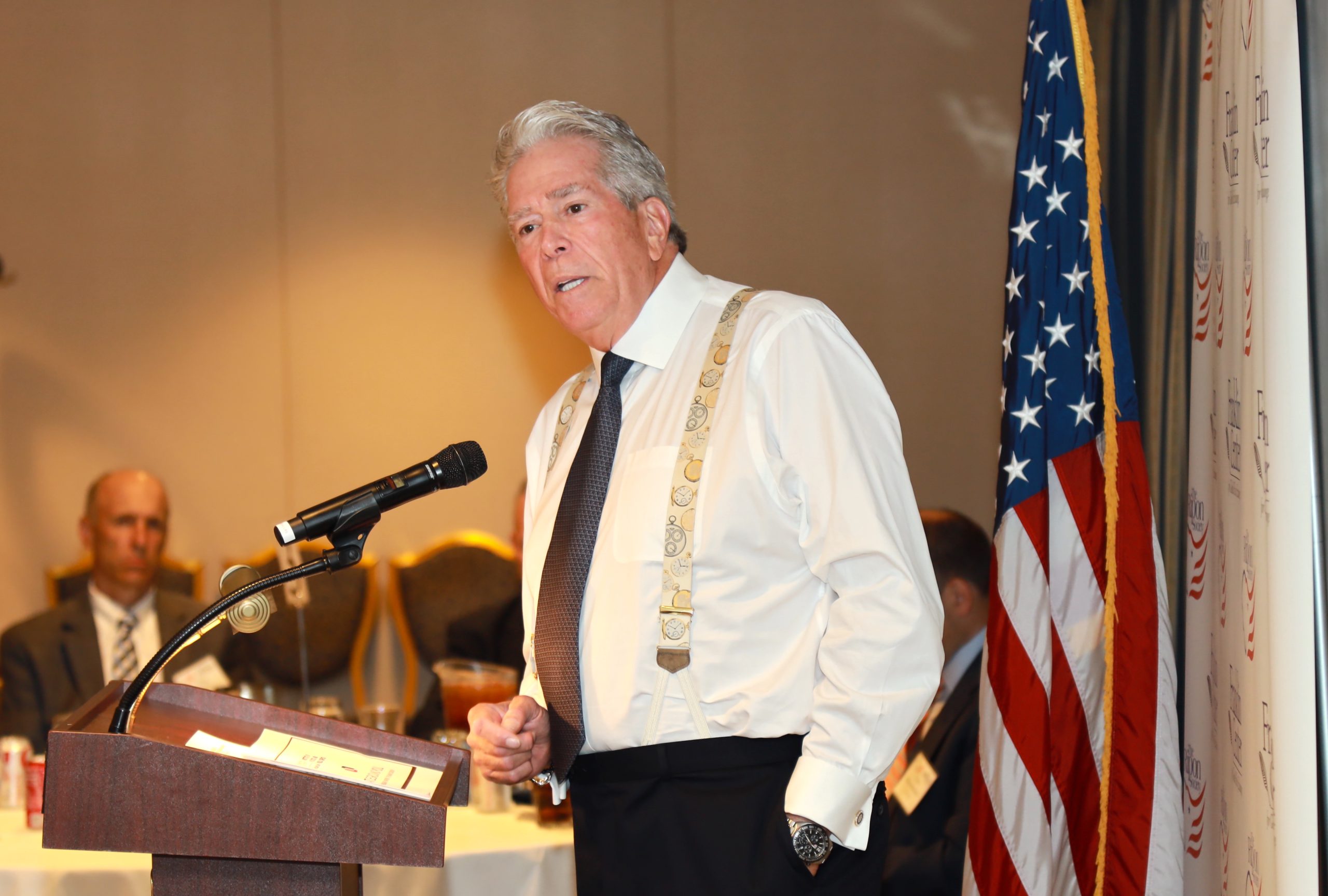
Goeas Presents Findings from Latest Poll on Civility and Respect
WASHINGTON, DC – Veteran pollster Ed Goeas appeared before a luncheon meeting of The Ripon Society and Franklin Center for Global Policy Exchange on Tuesday, delivering remarks about the findings from the latest Georgetown University Battleground Civility Poll and the state of civility and respect in American political life.
Goeas, who serves as the President & CEO of the Tarrance Group, began his remarks by looking at the dramatically low voter turnout in primary elections across the country, a problem, he says, driving the decline of civil bipartisan discourse in Washington.
“What we are seeing today in politics is that about 20% of Republicans vote in Republican primaries and 20% of Democrats vote Democrat primaries,” Goeas stated. “People are always throwing out redistricting as the problem, leading to more polarized candidates. The real problem, I believe, is that we have a very small number of Republicans and Democrats voting in primaries, and they are the ideologues on the two ends of the spectrum.”
Before he delved further into the topline results of the survey, Goeas also briefly touched on the public’s opinion on the current state of affairs.
“Today’s response on the ‘Is the country going the right direction or is it on the wrong track’ question is the worst I’ve ever seen it in 35 years of polling. Among likely voters, 77% say the country is on the wrong track – 67% say they strongly believe this.
“This is not going to change overnight. A few good pieces of economic news are not going to change things. If you look at the breakdown by party, 93% of Republicans say wrong track, 78% of independents say wrong track, and 62% of Democrats say wrong track.
“And if you look at the President’s approval rating over time, Biden came into office with 93% of Republicans saying they disapproved of his job – they already thought this before he even took office. They were polarized. They were negative. They were against him from the start. It wasn’t until Afghanistan occurred that he lost a majority of the ticket splitters and the independents, who moved against him because they thought he was incompetent in what he was doing.”
Civility, Goeas explains, is the language of respect. One reason for this decline in respect between Americans of varying political beliefs is the rise in isolation among America’s political factions.
“There’s a lot of data that would indicate people are trying to segregate into their own ‘groups.’ I think that’s probably a mislabel. What they’re doing is they’re trying to move into a ‘bubble.’”
The poll, according to Goeas, sought to look at the extent to which individuals are separating into these apparent ‘bubbles.’ Specifically, the survey asked respondents what they have in common with their close friends and family.
“When we asked about religion, 53% said they shared most of their beliefs with their friends and family. On politics, 59% said they shared most of their beliefs with friends and family. On whether their bubble shared the same ethnicity, 67% said yes and 52% said they shared the same economic class. On whether they vote for the same candidate, 55% yes. The same political party? 58% yes. Have the same type of job? Only 14% yes.
“They say demographics make everything, but people surely have shifted over the last 20 or 30 years to being in areas where it’s not a matter of segregation as much as it is getting into a bubble that they feel comfortable with. I think that becomes very important in talking about the future of gaining respect.”
Goeas wrapped up his presentation by outlining the results of one final question looking at the behavior of elected representatives.
“We asked the public, ‘Which one would you prefer: A politician who constantly fights for my values, even if this means not finding a solution very often, or a politician who’s willing to work together to get some things done, even if it means compromising on my values sometimes? The response was that 30% prefer politicians who fight for their principles and 66% prefer politicians who fight for solutions and respect the other side. This is a reason to be optimistic.
“Sixty-seven percent of the American public fits into category of centrist: either somewhat liberal, somewhat conservative, or moderate” Goeas explained. “Guess where they are on this question – they’re around 90% in favor of politicians who work toward compromise. Voters at the far ends of the political spectrum are the ones who are demanding a fight.”
To view Goeas’ remarks before The Ripon Society and Franklin Center’s luncheon meeting on Tuesday, please click on the link below:
The Ripon Society is a public policy organization that was founded in 1962 and takes its name from the town where the Republican Party was born in 1854 – Ripon, Wisconsin. One of the main goals of The Ripon Society is to promote the ideas and principles that have made America great and contributed to the GOP’s success. These ideas include keeping our nation secure, keeping taxes low and having a federal government that is smaller, smarter and more accountable to the people.



